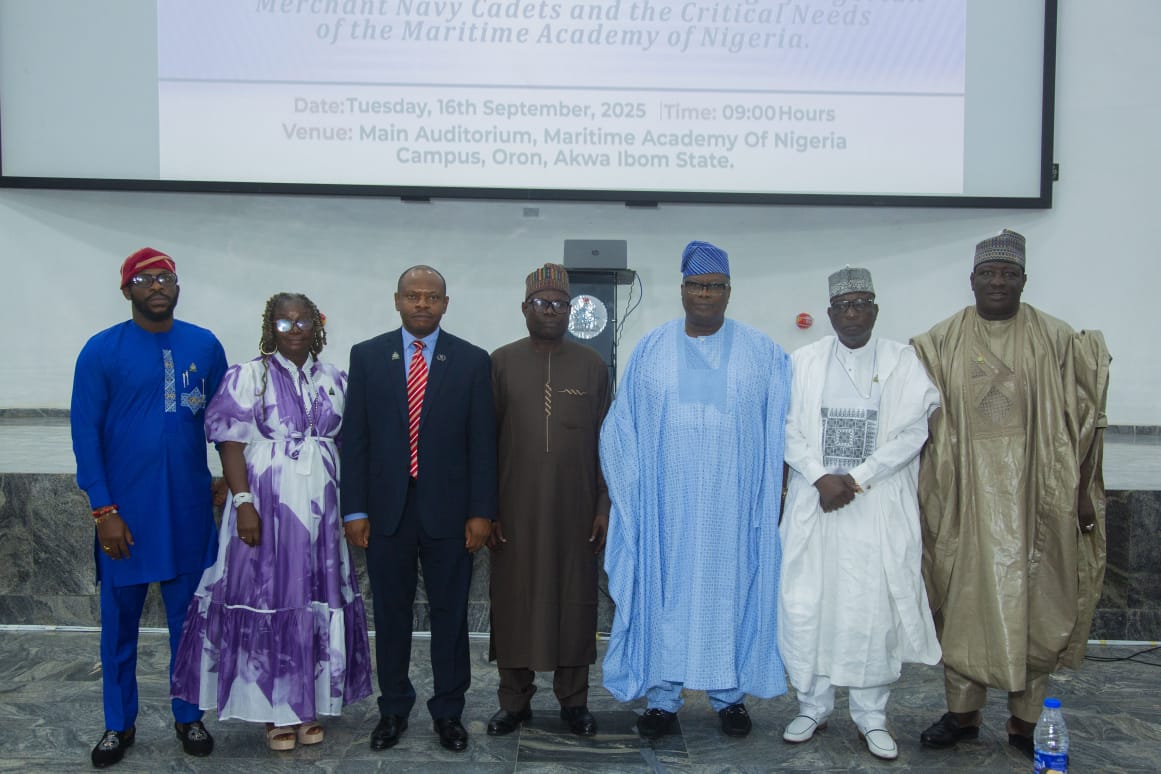
With a recently produced 5 year strategic development plan (SDP) awaiting ministerial approval, the Maritime Academy of Nigeria has geared up to better align with government policy on marine and blue economy,pursue greater vessel placement for it’s cadets while supporting increased employability of it’s graduates.
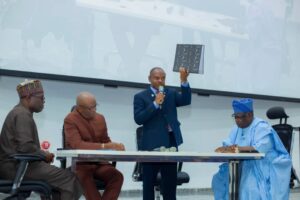 Rising from the just concluded third quarter 2025 Citizens and Stakeholders Engagement held in Oron, the seat of the Maritime Academy of Nigeria, government and private sector industry stakeholders foresee a brighter future for onboard training of Nigerian merchant navy cadets.
Rising from the just concluded third quarter 2025 Citizens and Stakeholders Engagement held in Oron, the seat of the Maritime Academy of Nigeria, government and private sector industry stakeholders foresee a brighter future for onboard training of Nigerian merchant navy cadets.
With this as thrust of the meeting, the Chief Engr. Kehinde Akinola led Governing Council has expressed resolve to support Acting Rector Dr. Kevin Okonna in taking the country’s premier maritime training institution to greater heights.
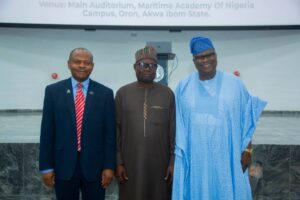 Looking at the critical role of capacity building in the marine and blue economy ecosystem, Okonna is prioritising train the trainers programme with the aim of increasing the standards of MAN Oron. The academy has a swelling rank of competent Nigerian and foreign trainers pursuing excellence in the face of limited resources.
Looking at the critical role of capacity building in the marine and blue economy ecosystem, Okonna is prioritising train the trainers programme with the aim of increasing the standards of MAN Oron. The academy has a swelling rank of competent Nigerian and foreign trainers pursuing excellence in the face of limited resources.
A foreign training expert who left the academy in October 2021 has recently rejoined the faculty at Oron from India.
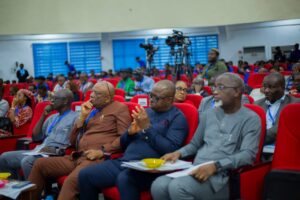 According to the Acting Rector, a total of 75 staff members have been trained up to varying levels of qualifications up to lead auditors in line with ISO 9001:2015 Quality Management System and Educational Organisation Management System (EOMS). He disclosed the academy’s readiness for ISO:9001:2015 and EOMS quality standards certification audit by the Standards Organisation of Nigeria, later this year.
According to the Acting Rector, a total of 75 staff members have been trained up to varying levels of qualifications up to lead auditors in line with ISO 9001:2015 Quality Management System and Educational Organisation Management System (EOMS). He disclosed the academy’s readiness for ISO:9001:2015 and EOMS quality standards certification audit by the Standards Organisation of Nigeria, later this year.
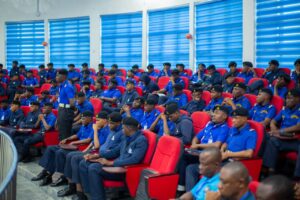 Towards promoting staff welfare, for the first time since it’s establishment, the academy has completed the development of conditions of conditions and scheme of service for its employees and obtained the recommendations of the Governing Council, Federal Ministry of Marine and Blue Economy to the Office of the Head of Civil Service of the Federation, where it is receiving attention.
Towards promoting staff welfare, for the first time since it’s establishment, the academy has completed the development of conditions of conditions and scheme of service for its employees and obtained the recommendations of the Governing Council, Federal Ministry of Marine and Blue Economy to the Office of the Head of Civil Service of the Federation, where it is receiving attention.
Deploying stakeholders interaction and engagement, Okonna has led the academy into contact with Shipowners Association of Nigeria(SOAN) ,Nigerian Shipowners Association(NISA) for provision of on board training opportunities for cadets and the academy and obtained their commitments for support.
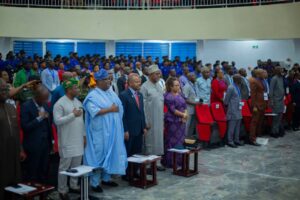 It’s alumni body is not left out in the March to make the academy greater, Okonna disclosed that earlier this year, he wrote to bodies of maritime professionals including the Alumni Association of Maritime Academy of Nigeria (AMANO) for support in the employment of more professionals. This is to enable expansion in the academy’s course contents and improvement in the quality of training being offered.
It’s alumni body is not left out in the March to make the academy greater, Okonna disclosed that earlier this year, he wrote to bodies of maritime professionals including the Alumni Association of Maritime Academy of Nigeria (AMANO) for support in the employment of more professionals. This is to enable expansion in the academy’s course contents and improvement in the quality of training being offered.
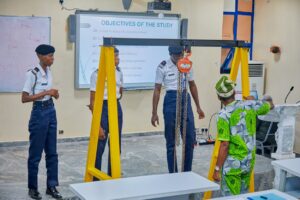 While the academy was hitherto identified as one of West Africa’s best with modern training facilities including smart classrooms, Okonna has achieved a zero power interruption system with its connection to public power supply and availability of solar powered system for
While the academy was hitherto identified as one of West Africa’s best with modern training facilities including smart classrooms, Okonna has achieved a zero power interruption system with its connection to public power supply and availability of solar powered system for
hostels and classes achieving all night illumination.
This was made possible through the purchase of 3 brand new transformers with active collaboration with the Portharcourt Electricity Distribution Company to intervene on the Eket-Oron power supply line to reconnect power to the academy after about eight years with improved power supply in the institution and in the host community of Oron.
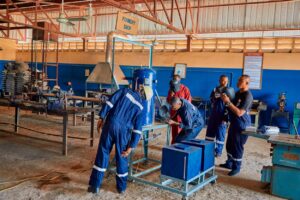 The Oron host community has also benefited from MAN’s intervention on safety awareness for inland waterways travelers through enlightenment programmes and donation of lifejackets to prevent casualties in the event of marine accidents.
The Oron host community has also benefited from MAN’s intervention on safety awareness for inland waterways travelers through enlightenment programmes and donation of lifejackets to prevent casualties in the event of marine accidents.
The SDP blueprint aims to reposition the academy as a global leader in maritime training, aligning with the National Policy on Marine and Blue Economy. The plan, which incorporates a SWOT (Strengths, Weaknesses, Opportunities, Threats) analysis, is currently awaiting approval from the Minister of Marine and Blue Economy, Adegboyega Oyetola.
Key Objectives
The SDP focuses on transformative goals to elevate MAN’s standards and relevance:
Accelerate institutional reforms: Streamline operations for greater efficiency and sustainability.
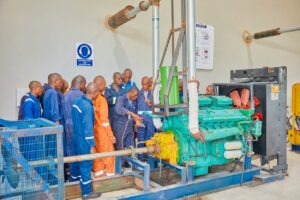 Enhance training standards: Ensure cadets receive world-class education meeting international benchmarks, including practical onboard experience.
Enhance training standards: Ensure cadets receive world-class education meeting international benchmarks, including practical onboard experience.
Deepen industry linkages: Foster partnerships with shipowners, operators, and global stakeholders to secure placements and certificate recognition.
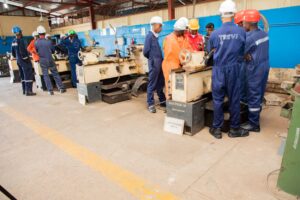 Reposition the academy regionally and globally: Establish MAN as a leading institution in West and Central Africa, and among the world’s top maritime training institutes (MTIs).
Reposition the academy regionally and globally: Establish MAN as a leading institution in West and Central Africa, and among the world’s top maritime training institutes (MTIs).
These objectives build on MAN’s achievements, such as training over 25,000 seafarers and developing specialized courses like Port State Control training for West Africa following a recent memorandum of understanding with the Abuja Memorandum of Understanding on Port State Control,otherwise known as Abuja MoU.
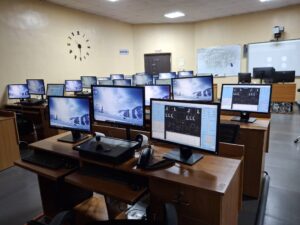 The academy also recently signed an MoU with the Chartered Institute of Logistics and Transport (CILT) Nigeria to broaden cadets knowledge through compulsory membership by cadets in the School of Maritime Transport and Business Studies.
The academy also recently signed an MoU with the Chartered Institute of Logistics and Transport (CILT) Nigeria to broaden cadets knowledge through compulsory membership by cadets in the School of Maritime Transport and Business Studies.
Like it’s obtainable in other top rated institutions, Dr Okonna said students membership of credible professional bodies would be made compulsory to support their growth in their line of learning, grant them access to network with experienced professionals and open opportunities for employment for them ahead of graduation
Core Components of The SDP
The plan emphasizes actionable, phased strategies using SMART (Specific, Measurable, Achievable, Relevant, Time-bound) goals:
Cadet Placement and Seatime Training: Address challenges in mandatory onboard experience by partnering with shipping companies; the 2025 budget allocates funds to subsidize this, even if partially student-funded.
Infrastructure and Technology Upgrades: Procure advanced simulators and maintain facilities to meet global technological demands.
Curriculum and Certification Improvements: Enhance programs for better international recognition of MAN certificates, crucial for seafarer employability.
Sustainability and Collaboration: Promote innovation through industry ties and initiatives bridging policy with practice, such as collaborative training programs.
Early “low-hanging fruits” from the plan, like initial cadet outreach efforts, have already been implemented.
Timeline and Implementation
Engr. Akinola who talked about the 5 year SDP, stated that the academy’s programmes and goals are better planned with it as it has scheduled timelines for delivering on it’s objectives from year one to year five
Milestones: Short-term targets include achievements by March 2026 and monthly progress reviews in the first full year; longer-term goals focus on gradual scaling to full global competitiveness by 2030.
The Governing Council approved the draft in mid-2025, marking a proactive step under Oyetola’s policy direction.
Expected Impact and Future Goals
The SDP is poised to drive MAN’s evolution into a “powerhouse” for Nigeria’s maritime sector, contributing to blue economy growth through skilled manpower and economic investments. Future goals include attracting international collaborations, boosting cadet career prospects, and resolving certification hurdles to enhance the academy’s reputation.
This aligns with broader national targets, such as establishing new fish processing plants and renewable energy investments by 2025. Stakeholders, including the minister, have urged MAN to produce “thorough-bred professionals” to support these ambitions.










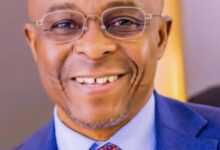
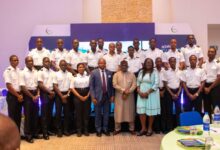
fq0cy2
PUBLIC ANNOUNCEMENT
To all the “Clearing Agent, Dealers And Individual Buyers”,This Is The Privilege you have been looking For To Own a Vehicle Of Your Choice At Affordable Auction Rate Approved By The Federal Government Of Nigeria.WE(NCS) have BEGING THE ONLION Auctioning OF SEIZED GOOD’S
. Granting You the Privilege to Own any items at Affordable Rates. INTERESTED BUYER SHOULD KINDLY CONTACT CUSTOM OFFICER GABRIEL J. E ATTAH…WE are Replacement and Recruitment new officers
RICE AVAILABLE FOR SALES ARE :-
Royal umbrella=18,000
Mama Gold=20,000
Royal stallion=18,000
Rising sun=18,000
Special rice=18,000
Mama Africa=18,000
Elephant Gold=18,000
Caprice =20,000
Gallon of oil =8,500
NOTE: TRANSPORTATION CHARGES IS (#3000) which must be paid before we ensure your delivery.
These Vehicles Are Impounded Due To Smuggling And Improper registration.
*These Vehicles Are Direct Belgium/Tokunbo and Has Never Been Used In Nigeria.
BALE OF CLOTHES FOR SALE (50K) price is #80k CARS FEATURES AND PRICE BELOW: •FORD EDGE 900,000.
• TIPPER HEAD =8 Million
• CAMRY TING LIGHT =350k
• CAMRY 2.4 =N500,000
• CADILLAC =4Million TO 30mill
• GMC= 4.6Million to 22m
• Toyota Land Cruiser-N1.3m TO N12.5 m
• Toyota Prado 850K TO N10m
• Toyota Corolla 500k TO N5.6m
• Toyota Camry 800k TO N7.2M
• Toyota Avensis 650k To N5M
• Toyota Yaris 600k TO N6m
. Toyota camry spider 1.850m
. Toyota camry muscle 1.850,000
• Toyota Venza 1.7m TO N8m
• Toyota Tundra 1.880,000 TO 10million
• Toyota Tacoma 2million to 12mill
• Toyota RAV4 SUV 700k TO N6.5m
• Toyota Hilus Pickup 950k TO N9m
• Toyota Dyna Truck 700k To N5m
• Toyota Hiace Bus 900k To N6.3 m
* Toyota Highlander980k TO N12m
*Toyota Big daddy-N1.m
*Toyota Sinner 680k TO 1.2m
Honda Civic cars – N850,000
Honda Accord – N950k
Honda CR-V –N980,000 to 4m
Honda Pilot 1m TO – 3M
*Prices of some Volswagen cars:
Golf 2,-N250,000
golf 3,N300k
Golf 4,N500,000
golf 5 -N550k
Jetta-N380,000
Passat-N450,000
Lexus Rx300=N800,000. To N5.1 Million
Lexus Rx330=N850,000 To N6.2 Million
Lexus Rx350=N900,000 To N8.3 Million
Lexus Rx400=N2.9m to 7m
Lexus es350 3.8m to 9m
Lexus Es330 2.6m to 6m
GX460 4m TO 10m
Gx470. 4.3Million TO 9m
Is250 1.8m to 6m
Nissan Altima 700,000
Nissan Murano 900k To 3m
Nissan maxima 600,000
Nissan pathfinder 980k To 3.8m
Mercedes benze GLE 450 .6m to 11m
Mercedes benze GLA 5m to 8m
Mercedes BENZ C-CLASS ₦3,000,000
MERCEDES-BENZ E-Class ₦3,500,000
MERCEDES-BENZ G-Class ₦4,000,000
MERCEDES BENZ ML 450 ₦5m to 7m
Mercedes-Benz GLK ₦3.5 Million
Mercedes-Benz GLE 350 4.8m TO 12m
Mercedes Benz ML350 ₦3.3 TO 8m
Mercedes Benz g-wagon 10m TO ₦125 mill
Acura ZDX 1.200,000 TO 12m
Acura MDX 1.4m TO 10m
Range rover vogue 10m TO 22m
Range rover sport HSE 5m TO 18m
Range Rover Velar 11m TO 28m
Land rover 4m to 12 million
BMW X5 N2,550,000 to 10m
BMW 3-SERIES N2,000,000 TO 5M
BMW 5-SERIES N2,300,000 TO 6.7M
BMW X6 N2,600,000 to 12m
BENTLEY 3.6M TO 20M
Mitsubishi 3Million to16mill
👉CALL OR WHATSAPP ON 07068757992
* LAMBORGHINI HURACAN
* ROLLS-ROYCE GHOST
* PORSCHE CAYENNE
Bags of cement #5,500
Delivery cost is #300
INSTALLMENTAL PAYMENT IS FULL ALLOWED. With a minimum period of 3 months and a maximum period of 9 months !!All VEHICLES ARE SLIGHTLY NEGOTIABLE〽WE COMMENCE DELIVERY WITHIN 36 STATE IN NIGERIA•